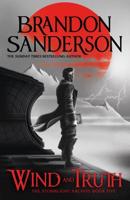Publisher's Synopsis
Excerpt from Against the Grain
N trying to represent the man who wrote the extraordinary books grouped around A Rebours and En Route, I find myself carried back to the decline of the Latin world. I re call those restless Africans who were drawn into the vortex of decadent Rome, who ab sorbed its corruptions with all the barbaric fervour of their race, and then with a more natural impetus of that youthful fervour threw themselves into the young current of Christianity, yet retaining in their flesh the brand of an exotic culture. Tertullian, Augus tine, and the rest gained much of their power, as well as their charm, because they incarnated a fantastic min gling of youth and age, of decayed Latinity, of tumult uously youthful Christianity. Huysmans, too, incarnates the old and the new, but with a curious, a very vital difference. Today the roles are reversed; it is another culture that is now young, with its aspirations after human perfection and social solidarity, while Christian ity has exchanged the robust beauty of youth for the subtler beauty of age. The most perfect analogy to our time which I can find, wrote Renan to his sister amid the tumults of Paris in 1848, a few weeks after Huysmans had been born in the same city, ' 'is the moment when Christianity and paganism stood face to face. Huysmans had wandered from ancestral haunts of mediaeval peace into the forefront of the struggles of our day, bringing the clear, refined perceptions of old culture to the in tensest vision of the modern world yet attained, but never at rest, never once grasping except on the purely aesthetic side the significance of the new age, always haunted by the memory of the past and perpetually feeling his way back to what seems to him the home of his soul. The fervent seeker of those early days, indeed, but d rebours.' This is scarcely a mere impression; one might be tempted to say that it is strictly the formula of this com plex and interesting personality. Corning on the mater nal side from an ordinary Parisian bourgeois stock, though there chanced to be a sculptor even along this line, on the paternal side he belongs to an alien aristoc racy of art. From father to son his ancestors were painters, of whom at least one, Cornelius Huysmans, still figures honourably in our public galleries, while the last of them left Breda to take up his domicile in Paris. Here his son, J oris Karl, has been the first of the race to use the pen instead of the brush, yet retaining precisely those characters of veracity of imitation, jewel-like richness of colour, perfection of finish, emphasis of character, which their historian finds in the painters of his land from the fourteenth century onwards. Where the Meuse approaches the Rhine valley we find the home of the men who, almost alone in the north, created painting and the arts that are grouped around painting, and evolved relig ious music. On the side of art the Church had found its chief builders in the men of these valleys, and even on the spiritual side also, for here is the northern home of mysticism. Their latest child has fixed his attention on the feverish activities of Paris with the concentrated gaze of a stranger in a strange land, held by a fascination which is more than half repulsion, always missing some thing, he scarcely knows what. He has ever' been seek ing the satisfaction he had missed, sometimes in the aesthetic vision of common things, sometimes in the re fined Thebaid of his own visions, at length more joy fully in the survivals of mediaeval mysticism. Yet as early Africans still retained their acquired Roman instincts, and that fantastic style which could not be [shaken off, so Huysmans will surely retain to the last the tincture of Parisian modernity. About the Publisher Forgotten Books publishes hundreds of thousands of rare and classic books. Find more at www.forgottenbooks.com
























